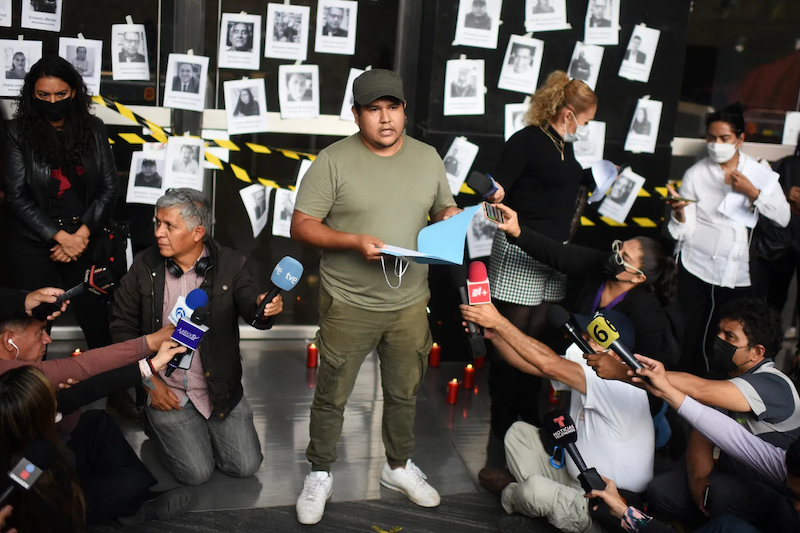
04/08/2024 (written by cahtoong) – According to Central Electoral, the Instituto Nacional Electoral (INE) will begin early voting for over 93,000 people in preventive detention centers in early May. Preventive detention is used for people who are currently awaiting trial who have not yet been convicted of a crime. The process will go from May 6th through May 20th and will be a leap towards recognizing the electoral rights of those who are detained.
What prompted voting from preventive detention centers?
In June of 2018, two inmates held in the “El Amate” State Center for Social Reintegration (CERESO 14) in Cintalapa, Chiapas, filed a complaint to the Supreme Court due to the INE’s failure to issue guidelines regarding the voting rights of imprisoned individuals who have not yet been convicted (Expansión Política). In February of 2019, the Supreme Court concluded that people detained in jails who have not been sentenced have the right to vote because they are protected under the principle of presumption of innocence. INE carried out a pilot program for voting in preventive detention centers in 2021, which has been successfully implemented in the elections that followed. Carla Humphrey, legal counsel to the INE, stated that individuals can not be incarcerated unless a conviction sentence is definitive.
The pilot tests in 2021 included a total of 4,530 individuals in the states of Mexico and Coahuila who were able to vote at the federal, state, and local level. These votes were cast from May 15th through the 19th in 21 preventive detention centers, reaching 4,991 individuals out of 9,557 who were able to vote while in preventive detention centers (Expansión Política). The programs tested out in 2021 will be fully implemented in the upcoming 2024 presidential election.
How will the electoral process work?
Maria Luisa Flores Huerta from the INE explained that they will install special ballot boxes inside penitentiary centers, in which they will give people envelopes containing their ballots for the federal and local elections (Animal Politico). After casting their votes, the envelopes will be closed and sealed, and will be opened and counted on Election Day. According to Central Electoral, the authorities of federal and local Public Security had to set up a database of those who were detained without conviction by the end of December 31, 2023. These groups will also provide records of persons in preventive prisons held in penitentiary centers through verification of fingerprints and photographs of the detainees. In order for those who are detained to vote, they must be registered on the Nominal List of Voters and not have their political-electoral rights suspended due to conviction.
According to El Sol de Tlaxcala, Tlaxcala was the first state to sign a national agreement allowing citizens in preventive detention centers to vote in the state jails, which was based on the account of the member of the local executive board of the INE, Jesus Lule Ortega. Lule Ortega claims that the project can be executed during the 2024 federal and local electoral process, a historic development for the electoral process in Mexico. Ortega announced that the state Directorate of Prevention and Social Reintegration Salomón Amador González will provide a list of around 650 people in Tlaxcala who are awaiting outcomes of whether or not they will be incarcerated. Amador González believes the penitentiary system has undergone a transcendental evolution that will recognize the political-electoral rights of non-sentenced inmates.
Similarly, Jalisco signed a collaboration agreement to establish legal mechanisms for people in preventive detention to exercise their right to vote. According to the Secretary of State Security, over 5,564 inmates in Jalisco will be able to vote in the upcoming elections. One of the Executive members of the INE in Jalisco, Luis Zamaora Cobían, highlighted the importance of registration and making sure requirements are met so inmates can vote in the upcoming election, making it the most inclusive in Mexico’s history. According to El País, the governors of Veracruz and Yucatán have refused to give inmates these rights. Although Veracruz has over 4,500 people spread throughout 17 prisons, Governor Cuitláhuac García does not want to move forward with the initiative for “security reasons.” Yucatán has not disclosed any reason for their refusal, other than for reasons such as technical issues of identifying those in preventive detention centers who are still awaiting their sentence.
Constitutional Rights
Based on Mexico’s Constitution it is important to analyze why individuals in preventive prisons can vote. Article 38 of the Constitution allows citizens’ rights to be suspended for certain reasons, one is by being subject to criminal proceedings for certain crimes. These suspensions start when formal imprisonment occurs. Although article 20 states that the criminal process defends that innocence is the “right of every accused person, until the contrary is proven,” this is when a sentence is handed down (Animal Politico). Meaning as long as the accusations of those who are detained have not yet been proven, then they are able to continue their right to vote.
Sources
Guillén, Beatriz. “Este año las personas en prisión también eligen presidente.” El País. March 12, 2024.
Velázquez, Ave. “Personas en prisión preventiva podrán votar el 2 de junio, ¿cómo es el proceso?” Animal Politico. February 15, 2024.
Comunicación Social Del Gobierno Del Estado De Jalisco. “En Jalisco podrán votar personas en prisión preventiva.” Jalisco Gobierno Del Estado. January 30, 2024.
Lima, Jesús. “Internos en Ceresos de Tlaxcala podrán votar.” El Sol de Tlaxcala. December 16, 2023.
“Realizará INE Voto en Prisión Preventiva del 6 al 20 de mayo de 2024.” Central Electoral. December 12, 2023.
Vallejo, Guadalupe. “Elección 2024: 93 mil personas en prisión podrán ejercer su derecho al voto.” Expansión Política. November 14, 2023.




